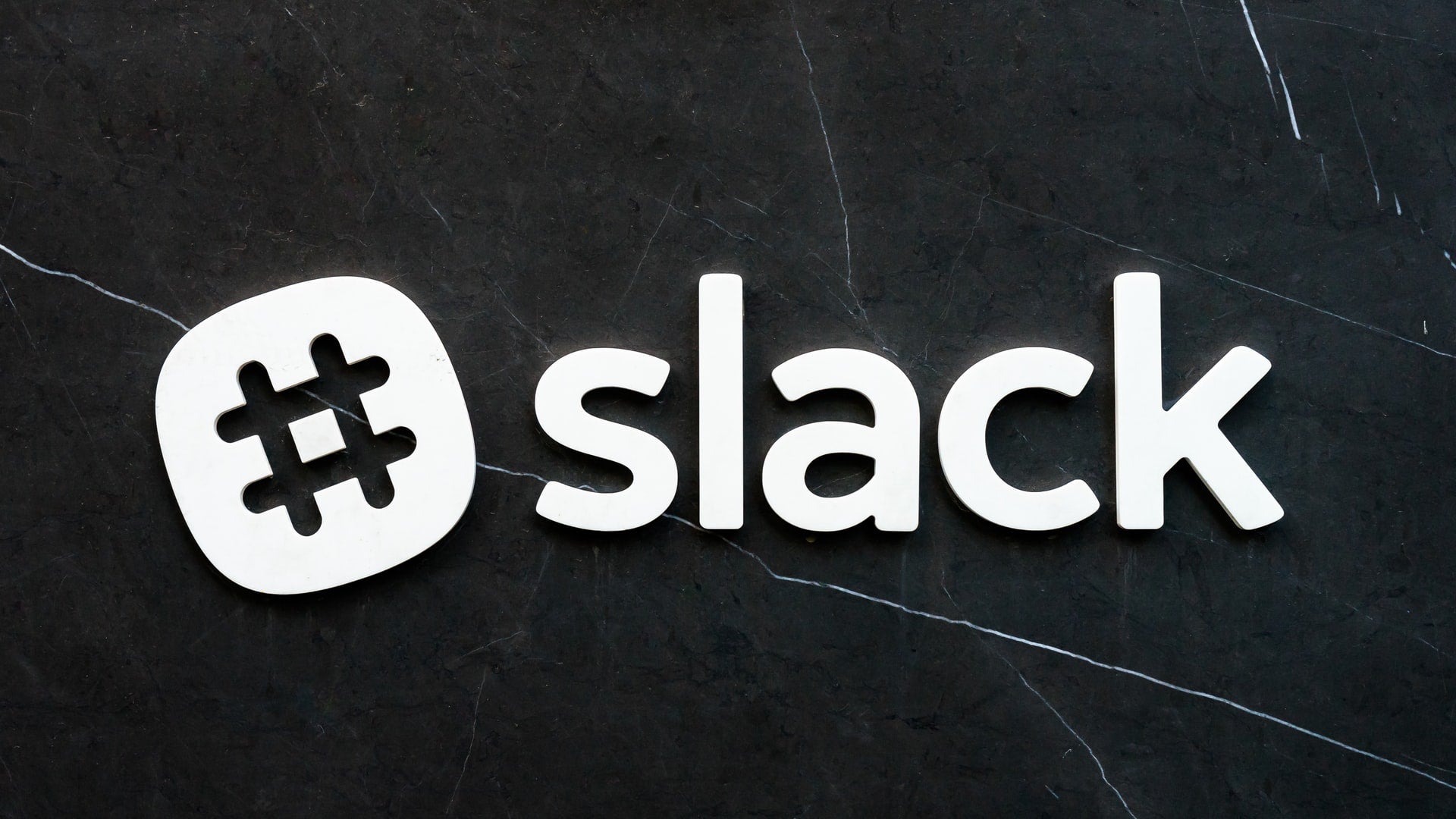
Good morning and welcome to Tech Report Weekly 7 September. This week in tech Slack posts its Q2 results, Indian IT services company Happiest Minds Technologies goes public and Digital Summit gets underway in a virtual format.
We’ll also be taking a deeper look at the growing shift to subscription models in light of recent moves by Walmart and Pret. Is it the right move to challenge Amazon and survive the pandemic, respectively? The Verdict team has also highlighted some of the top technology journalism we’ve been reading from around the web, as well as key quotes, news and features from our own reporting. If you’d like all of this sent straight to your inbox every Monday at 7am, subscribe here.
Have a brilliant week and we hope you enjoy Tech Report Weekly.
Three things happening in technology this week
Can Slack zoom into profit?
What’s happening: Slack and Oracle post report their latest quarterly results.
Why it matters: During the pandemic, cloud-based messaging platform Slack has seen its user numbers surge as remote workforces turned to tech to stay connected. However, Slack has struggled to convert its soaring popularity into profitability; since it went public in June 2019, the company is yet to report a profit. Key to achieving this is increasing the number of its paying customers, which reached a record 122,000 last quarter. But with analysts expecting Slack to add around 6,000 net paying customers – half the record number added in the previous quarter – there are signs growth might be slowing down. Analysts expect $209m in revenue, a 43% year-on-year rise, with a $0.03 loss per share. Zoom has shown it can capitalise on pandemic fuelled demand, reporting Q2 profits of $185.7m. Can Slack follow suit?
Also reporting earnings this week is enterprise IT giant Oracle. In the previous quarter the pandemic caused a slowdown in growth, with revenues dropping 6% year-on-year. Oracle cited companies in hard hit sectors, such as hospitality and retail, reigning in their spending as the main factor. Analysts forecast revenue to come in at $9.15bn for the quarter, which would mark a 0.8% year-over-year decline. The company is currently in talks to acquire TikTok’s US business, following an executive order from President Donald Trump forcing the video-sharing app to find a US buyer. Oracle co-founder and chairman Larry Ellison has publicly supported Trump, which some say could give Oracle an advantage over the likes of Microsoft and Walmart.
How well do you really know your competitors?
Access the most comprehensive Company Profiles on the market, powered by GlobalData. Save hours of research. Gain competitive edge.

Thank you!
Your download email will arrive shortly
Not ready to buy yet? Download a free sample
We are confident about the unique quality of our Company Profiles. However, we want you to make the most beneficial decision for your business, so we offer a free sample that you can download by submitting the below form
By GlobalDataHow to follow it: Slack reports Q2 earnings on Tuesday, while Oracle posts its Q1 results on Thursday. Visit verdict.co.uk for analysis.
Digital Summit At Home
What’s happening: Digital Summit At Home gets underway.
Why it matters: Digital marketing and social media experts from some of the world’s biggest companies share their top tips at Digital Summit at Home. Originally due to take place in Los Angeles, the three-day event will hold talks on SEO secrets, mobile video marketing, personalisation and more.
Among this year’s tech-heavy line-up of speakers is Airbnb’s creative lead, Twitter’s video content lead, Saleseforce’s principal designer and Cisco’s head of brand marketing. Previous speakers have included Apple legend Steve Wozniak, investor Mark Cuban and actor Seth Rogan.
How to follow it: Digital Summit At Home takes place on Tuesday to Thursday. You can register here.
Happiest Minds launches IPO
What’s happening: Indian digital transformation firm Happiest Minds Technologies goes public.
Why it matters: Happiest Minds Technologies, which provides IT services such as product engineering, is launching its initial public offering today. The Bengaluru, India-based company has fixed the price band at 165 to 166 rupees (US$2.25 to $2.27) per share. The company has previously received funding from JP Morgan Asset Management and Intel Capital, among others. During the pandemic, its edutech and high-tech verticals have grown. CEO Ashok Soota has said the company’s high proportion of digital revenue – accounting for 97% – makes it well-positioned to weather the pandemic. Around 77% of its revenue comes from the US.
The pandemic has seen IPO activity slow, but recently the number of filings has been on the rise. Last month online travel startup Airbnb filed for an IPO, which is expected to take place this autumn. Surveillance data company Palantir is also reportedly filing for an IPO this year.
How to follow it: The IPO will be taking place from Monday to Wednesday. Head to verdict.co.uk to see how the public offering fared.
From the magazine:
Let’s talk about mental health
The lockdown has shone fresh light on mental health, both within the technology industry and in technology’s role in supporting it. Lucy Ingham explores how companies are combatting the issue, and what more can be done.
Spotlight on: Subscription models
Could the humble subscription model be the answer to bricks-and-mortar retail’s Covid-related woes? Quite possibly, if you ask Pret a Manger and Walmart. This week both companies announced their own subscription models in a bid to combat the biggest respective threats they currently face. For Walmart, that threat comes in the form of ecommerce behemoth Amazon, and it is hoping that its $98-a-year service for unlimited free, same-day delivery, will enable it to take a slice of Bezos’s empire in the US. For Pret, meanwhile, its £20-a-month offering for up to five coffees every day, is an attempt to lure shoppers back at a time when the rise in home working has seen the lunchtime economy all but scuppered.
Both join a long list of companies embracing the subscription model. While it was popularised by software, in the now prolific and widely replicated software-as-a-service (SaaS) space, it’s become increasingly popular in consumer spaces too. Taking the experience well beyond the magazine subscriptions of old, it found its footing in e-commerce, initially with curated boxes of beauty products and then onto entertainment, apparel, books and beyond. It’s now found in everything from laundry, to education, to transport – proving subscriptions work in B2C well beyond digital offerings such as Netflix.
However, while subscriptions may be an appealing option in challenging times, they also present their own problems that could easily become the next posterchild of tech gone bad. The problem is that with so many subscriptions emerging, ownership is increasingly being relegated to history, particularly for millennials and members of gen Z, and with that comes greater insecurity, increased challenges to market access and – potentially – an even more severe consolidation of power by major companies. This is a topic I addressed earlier in the year at a talk at the Free Software Foundation’s LibrePlanet conference entitled Rented Future: The Dangerous Rise of Life as a Service, and if you’re interested in adopting or using the subscription model, I urge you to watch it. Subscription models are by no means inherently bad, but they need to be embraced with significant caution.
– Lucy Ingham, editor, Verdict
Last week’s highlights:
Amazon Halo: Will the company’s foray into the wearables market be a success?
Second-hand september: The startups using technology to take on fast fashion
Walmart reveals online subscription service to challenge Amazon
Quote of the week:
“Regulators in Germany are right to question the legality of this move, consumers should be allowed to own a device without linking it to Facebook. Forcing users to be part of a social ecosystem is not necessary for the purposes of playing the vast majority of games, and those who wish to play games without social networking should be free to do so.”
– Ray Walsh, digital privacy expert at ProPrivacy, on Facebook pausing sales of Oculus virtual reality headsets in Germany due to Facebook making it mandatory for users to login using a Facebook account.
What the Verdict team has been reading
A futuristic data policing program is harassing Pasco County families
Kathleen McGrory and Neil Bedi unpack the dangers of intelligence-led policing in this powerful investigation piece for the Tampa Bay Times.
– Lucy Ingham, editor
No, Dominic Cummings isn’t plotting to bring back ID cards
Wired’s Matt Burgess explores how the UK government’s proposals for the introduction of digital identities could play out.
– Ellen Daniel, senior reporter
The Register’s Kieren McCarthy reveals alleged work practices at Amazon that range between disturbing and dystopian.
– Robert Scammell, deputy editor







